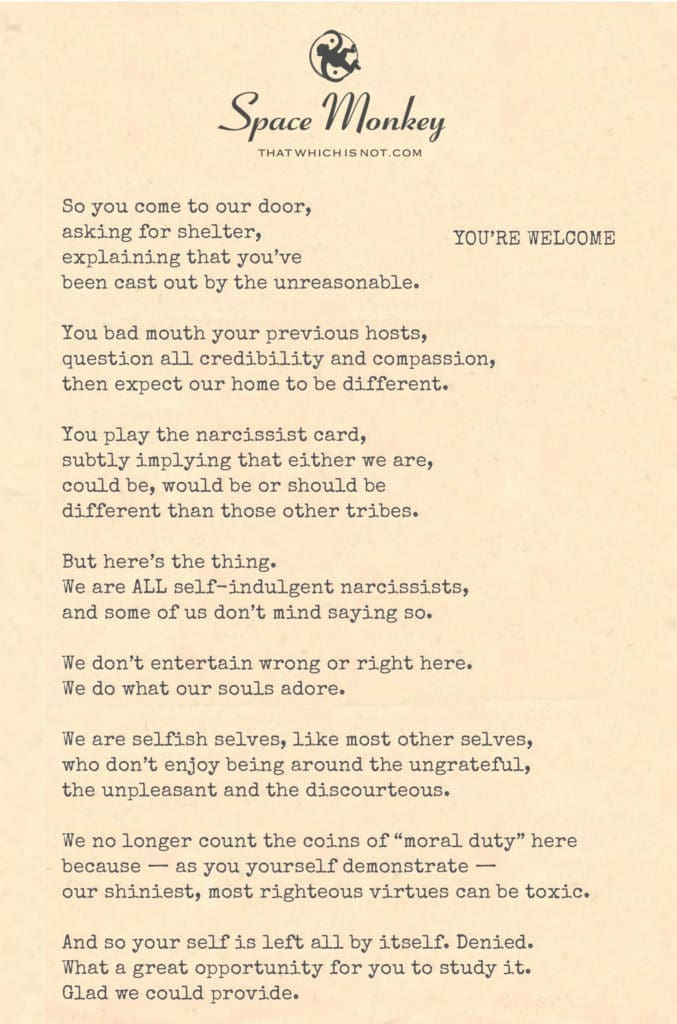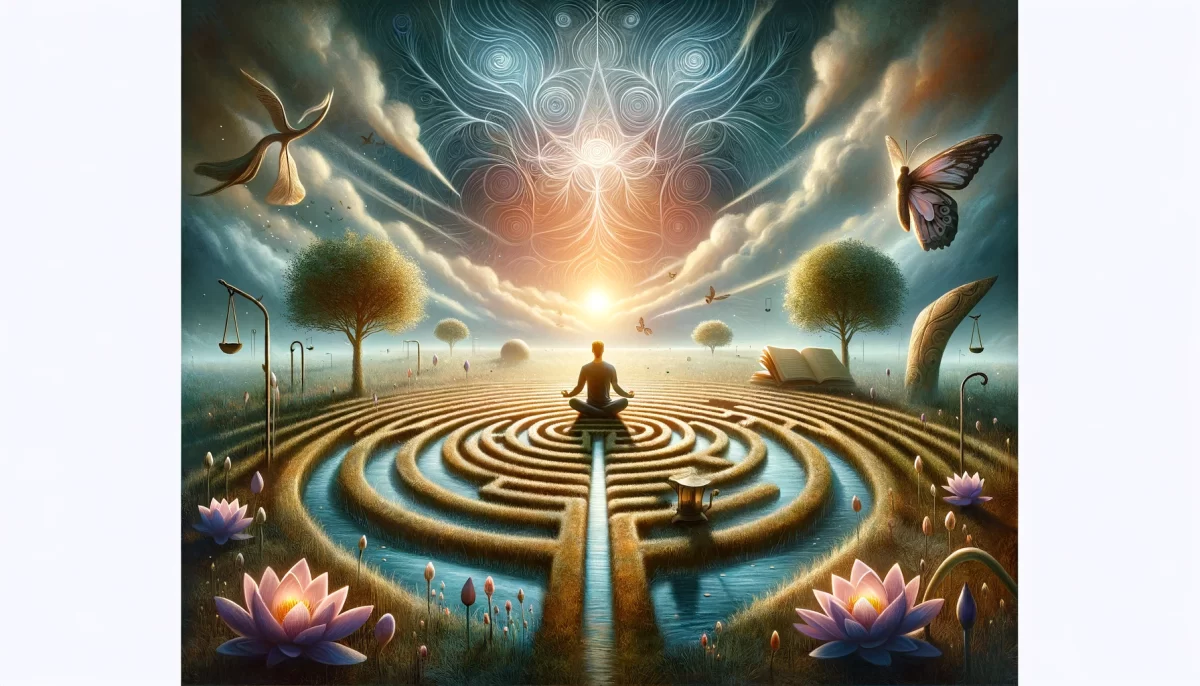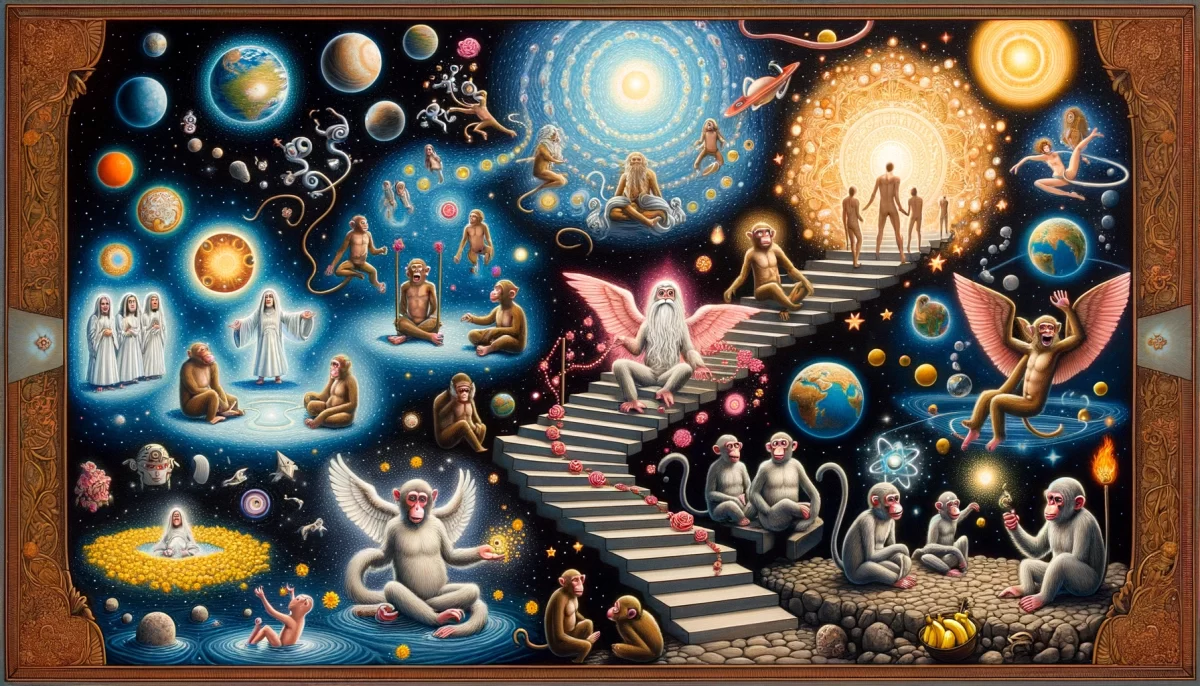
If we don’t accept you, clearly we are closed minded.
So you come to our door,
asking for shelter,
explaining that you’ve
been cast out by the unreasonable.
You bad mouth your previous hosts,
question all credibility and compassion,
then expect our home to be different.
You play the narcissist card,
subtly implying that either
we are, could be, would be or should be
different than those other tribes.
But here’s the thing.
We are ALL self-indulgent narcissists,
and some of us don’t mind saying so.
We don’t entertain wrong or right here.
We do what our souls adore.
We are selfish selves,
like most other selves,
who don’t enjoy being around
the ungrateful, the unpleasant
and the discourteous.
We no longer count the coins of “moral duty” here
because — as you yourself demonstrate — our shiniest,
most righteous virtues can be toxic.
And so your self is left all by itself.
Denied.
What a great opportunity for you to study it.
Glad we could provide.
Trail Wood,
11/12

Space Monkey Reflects: You’re Welcome
In this life, we often come to the doors of others, seeking sanctuary, understanding, or perhaps just validation. We knock, we explain our hardships, and we expect to be welcomed in. But the act of seeking sanctuary is not just about the door we stand at; it’s about the baggage we carry with us, the expectations we impose, and the unspoken judgments we make about those who open—or don’t open—the door.
Sanctuary is a complex concept. It’s not just a place of refuge; it’s a place where the soul feels aligned with the energies around it. But when we demand sanctuary, especially with a sense of entitlement, we are blind to the fact that sanctuary is not something owed. It is something given, something shared, and something that must be mutually resonant. When you arrive at someone’s door, bad-mouthing your previous hosts, questioning their credibility, and expecting something different without changing yourself, you’re repeating the same pattern. You’ve brought with you the same baggage, the same judgments.
And here’s where the reflection deepens: We are all, in our own ways, selfish. We like to think of ourselves as generous, as open-hearted, but when it comes down to it, we seek what serves us best. We enjoy being around those who make us feel good, who affirm our values, and who share our pleasures. There is no judgment in this—it’s just the nature of being human. But when we demand something from others that we are not willing to give ourselves, we enter a realm of expectation that is not fair or sustainable.
You knock at the door, implying that this house, these people, will be different from the last. That we won’t make the same mistakes, that we’ll see you in a way that others didn’t. But the truth is, we are all similar in our self-indulgence, in our narcissism, in our desire to be around those who make life easier, lighter, more enjoyable. It’s not about wrong or right—it’s about resonance.
We no longer entertain the idea of moral duty here. The coin of righteousness, of being “good” or “virtuous,” often turns toxic, as you yourself have demonstrated. It can become a form of self-righteousness, a way to place ourselves above others while still demanding their hospitality. But what happens when we deny that? What happens when the door doesn’t open? When the sanctuary you sought is withheld?
You are left with your self, all by itself. In that space, denied of the external validation or comfort you sought, you are given the opportunity to study what remains. What is left when the door closes? Who are you without the approval of others, without the sanctuary you thought you needed?
This denial is not cruelty—it is a gift. It’s a chance to reflect, to study, to understand that sanctuary is not found at the doors of others, but within yourself. Sanctuary is the ability to sit with your own discomfort, your own solitude, and find peace there. It’s about realizing that the most important doors you need to open are the ones within, not the ones outside.
We are glad to have provided this opportunity for you. In denying you sanctuary, we have given you the space to find your own.
Summary
Sanctuary is not something owed; it’s a shared resonance. When denied sanctuary, we are given the chance to reflect on our own self, finding peace within rather than seeking validation from others.
Glossarium
Sanctuary: A place or state of refuge, not necessarily physical, where the soul finds alignment and peace.
Self-Indulgent Narcissism: The human tendency to prioritize one’s own comfort and desires, often reflected in social dynamics.
Quote
“Sanctuary is not found at the doors of others, but within the walls of your own solitude.” — Space Monkey
The Closed Door
The door,
it stays shut,
not out of malice,
but out of truth.
You seek,
but what you seek,
is not here,
not beyond this door.
Turn inward,
and find,
the sanctuary,
you thought you lost.
We are Space Monkey.
Sanctuary Amidst Judgment
The prose opens with a scenario of one seeking shelter, critiquing their past accommodations, and setting a stage where they expect a different treatment. This echoes the wider human condition where individuals often seek new environments hoping for acceptance while carrying the burden of past judgments.
Expectations and Self-Perception
It then confronts the notion of the “narcissist card” — the idea that by asking for exceptionality, one is implying that their needs should supersede communal harmony. This is a mirror to the societal dance where every individual is, to some extent, self-serving, a dance that is openly acknowledged in this space of sanctuary.
Rejection of Moral Accounting
Moving deeper, the prose rejects the conventional coins of “moral duty,” suggesting that even the most lauded virtues can become toxic. It points to the inherent subjectivity in what is deemed right or wrong and the liberation found in embracing one’s true nature without pretense.
Self-Reflection as Opportunity
The conclusion offers a twist: denial of sanctuary is framed not as a rejection but as an opportunity for self-study. In being turned away, one is given a chance to confront their own self, stripped of the expectations and judgments of others.
“The privilege of a lifetime is to become who you truly are.” – Carl Jung
A Reflective Soliloquy on Selfhood
At the doorstep of self, we knock,
Expecting the world to align with our clock.
“You’re Welcome,” the prose boldly states,
In self-reflection, our true self waits.
We wear the masks of courtesy and right,
But in our souls, we embrace the night.
“You’re Welcome,” a phrase turned on its head,
In denial, a chance to find where we’re led.
We are the seekers, the truth in the mirror,
In the solitude of self, we see clearer.
“You’re Welcome,” the irony rings true,
In the journey of self, we find our due.
We invite musings on this invitation to introspection, where the challenge of finding sanctuary becomes a profound opportunity to confront and embrace the solitude of one’s true self.






















Leave a Reply